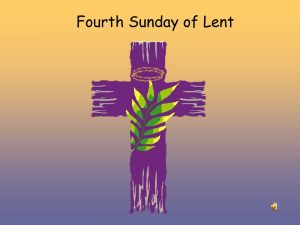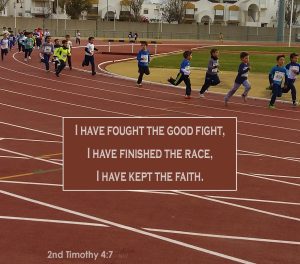 In the 2nd reading for this 32nd Sunday in Ordinary Time, Paul says to the Thessalonians: “Pray that the word of the Lord may speed forward and be glorified.” Paul continues: “I am confident in the Lord that what we instruct you, you are doing and will continue to do as the Lord directs your hearts to the love of God and the endurance of Christ.” This is a reminder that, yes, Jesus is depending upon us to be His hands and heart, acting on His behalf in our world.
In the 2nd reading for this 32nd Sunday in Ordinary Time, Paul says to the Thessalonians: “Pray that the word of the Lord may speed forward and be glorified.” Paul continues: “I am confident in the Lord that what we instruct you, you are doing and will continue to do as the Lord directs your hearts to the love of God and the endurance of Christ.” This is a reminder that, yes, Jesus is depending upon us to be His hands and heart, acting on His behalf in our world.
Since last week a lot has happened in less than one chapter in the Gospel according to Luke. Jesus’ actions have made the religious leaders so angry “they wanted to lay hands on him right then but were afraid of the people.” Why fear the people? Because the common people are absolutely spellbound by Jesus’ teachings. To top it off, Jesus had dared to eat with the sinner Zacchaeus.
This kind of behavior forced the religious leaders to wait until they could manipulate public opinion in their favor. Today, (in this Gospel) they try to trick Jesus in a very mean way with a question about what happens after we die. If Jesus gives a yes OR no answer, then they could make fun of him and try to convince the people that they shouldn’t listen to Jesus. But Jesus knows they are up to no good and He does not fall for their trick. Instead of talking about what happens after we die, Jesus talks about God as the God of the living, not of the dead.
Technically our reading ends with verse 38. Why it ends there is anybody’s guess. We really need to hear verse 40 to appreciate the impact of Jesus’ words. “Some of the scribes answered: ‘Teacher, you have spoken well.’ And, they no longer dared to ask him any more questions.” (Luke 20: 39-40)
If ever there was a group of people who were invested in the so-called “Gotcha” kind of questions, the religious authorities of Jesus’ day were that kind. It’s little different today. Sometimes certain politicians (usually the ones who are losing popularity points and don’t do well in interviews or debates) say that the reason they had such a shaky performance was that they were being set up all along with “Gotcha” questions designed to make them look stupid. Whether or not that’s necessarily true is something one can determine by replaying the questions and their answers. But sometimes it does turn out to be true and you can tell just by carefully watching the interviewee’s evasive look or cast down eyes as well as the reporter’s smug look into the camera. He/she didn’t really want an answer. It was just a childish ploy to get under someone’s skin and gain a headline and Tik Tok followers. It’s not an uncommon trick.
In this case in the Gospel, some thought it would be fun to publicly humiliate Jesus. But Jesus turned the tables on his listeners. Now I don’t believe Jesus is telling us not to ask any questions. But we do need to refrain from asking Sadducee-like questions. Those are trick questions; ones we already know the answer to. Or they might be questions for which we really do want the answer, but we only ask indirectly by pretending it’s someone else who wants an answer. You know how we do it: Sister “Some-One-Else” was wondering if … Or they might be hinting at a need or a desire instead of asking outright in the hope that the right person will overhear us, will catch on and come to our rescue. Jesus is reminding us to ask open, honest questions and truly listen deep down for the Voice of the Spirit who often speaks to us through the lips of another.
If we drill deeply into this story in Luke, we’ll discover that the Sadducees were actually impressed by Jesus. Maybe it was a flash-back to 20 years earlier when the 12-year-old Jesus amazed the people in the temple with his knowledge. Today Jesus is congratulated for his logic and use of Scripture to answer their tricky question.
In this week ahead, when we visit the cemetery and pray for our deceased Sisters, we will have the opportunity to focus on Jesus’ lesson about resurrection of the dead. We will call to mind, by name, our 51 deceased community members and pray for all who are buried in that sacred space. May all those who have gone before us on their journey of faith rest in eternal peace!
~by Sister Roberta Bailey, OSB
On Monday, November 7th our Sisters will gather at the cemetery located on Saint Leo University campus to honor the memory of their 51 deceased members. Friends of the community are welcome to join them for the Prayer Service and laying of flowers on the graves.
First Reading 2 Maccabees 7:2; 9-14
Second Reading Thessalonians 2:16-3:5
Gospel Reading Luke 20:27-28
Continue Reading









